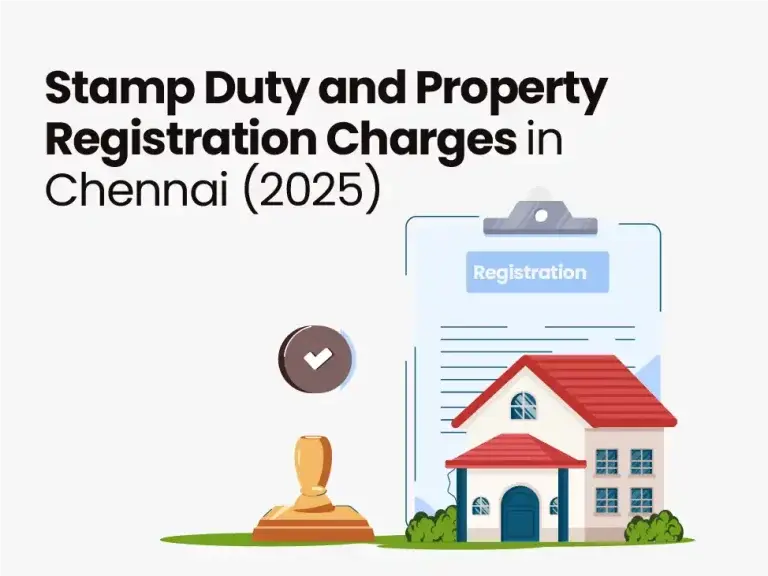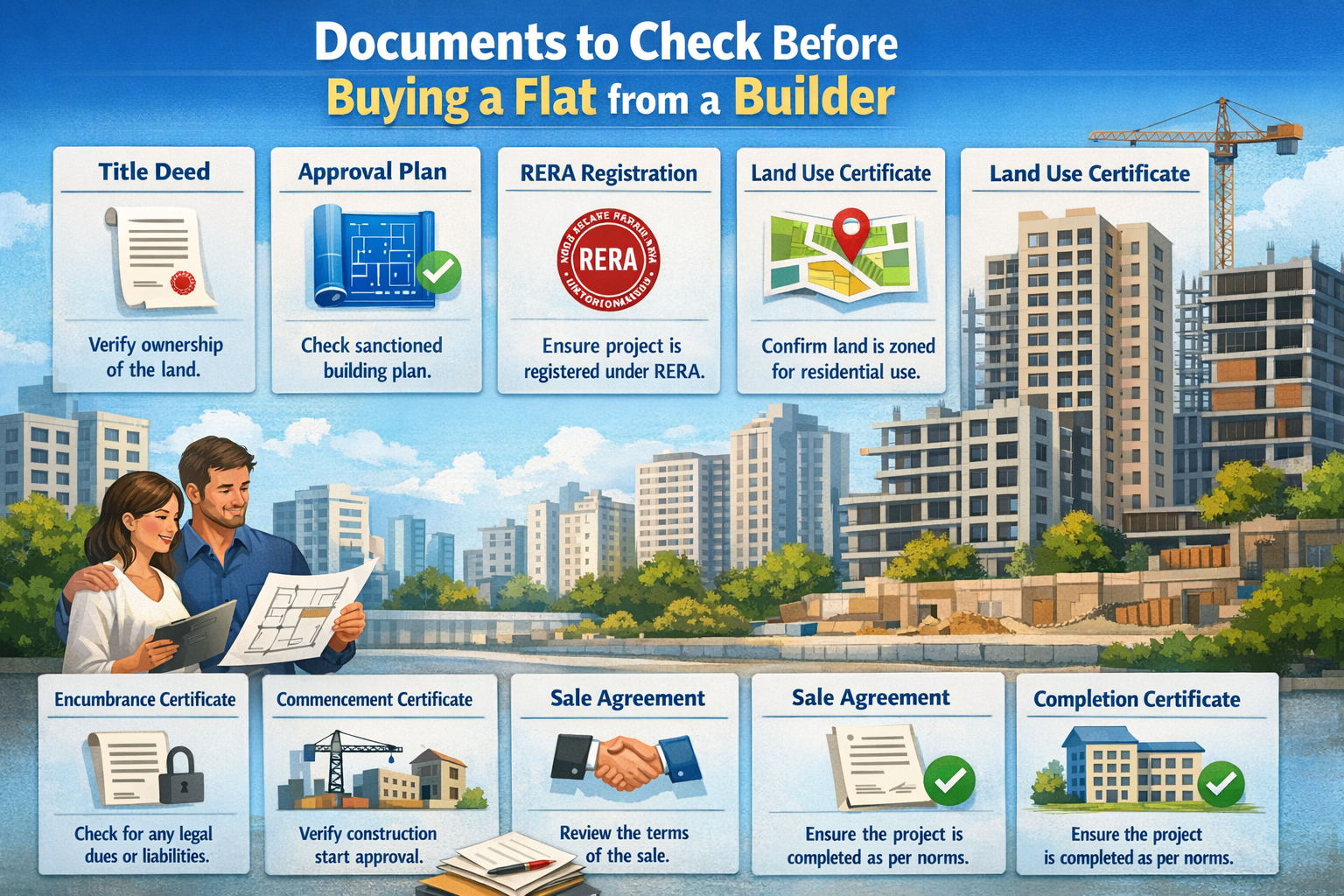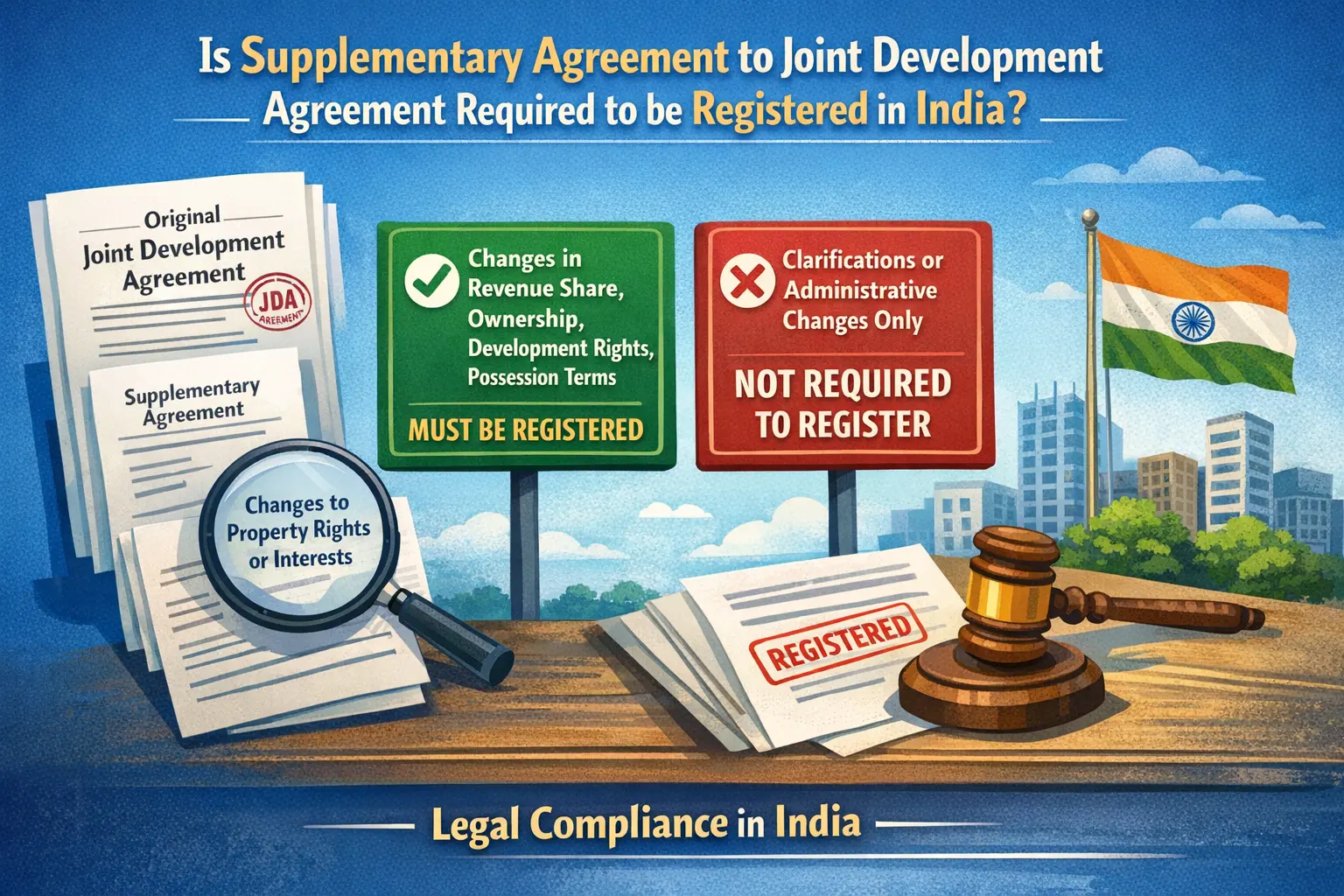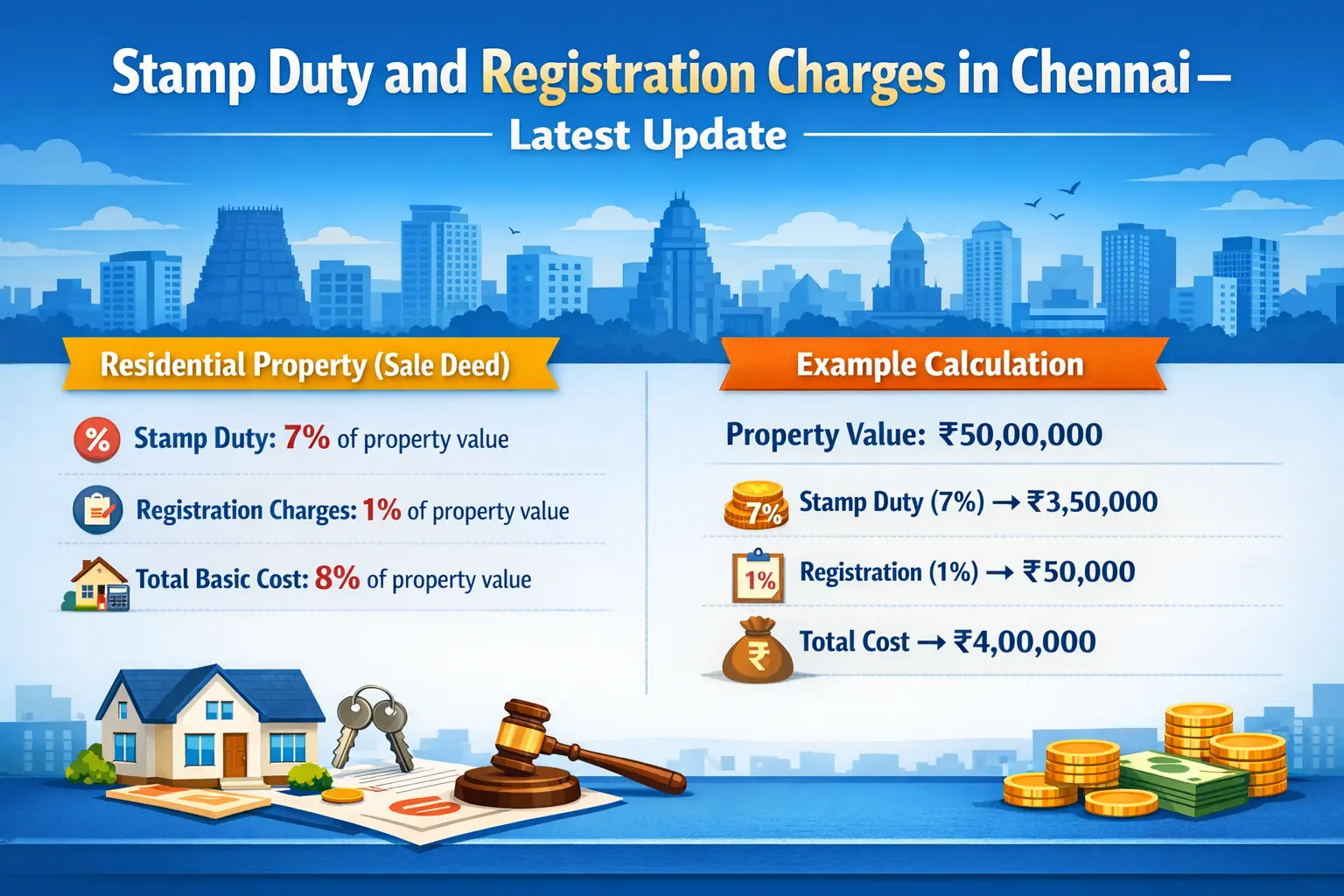Buying a home is one of the biggest financial commitments in life. While most buyers focus on the property price and home loan, they often forget about the stamp duty and registration charges—two mandatory payments that make the transaction legally valid.
The good news is, under Section 80C of the Income Tax Act, these expenses can also help you save tax. In this blog, we’ll cover everything you need to know.
1. What is Stamp Duty?
Stamp duty is a state government tax charged on the transfer of property ownership.
It is calculated as a percentage of the higher value between the property’s market value and the agreement value.
Key facts:
- Rates vary by state (usually 4%–7%).
- In Tamil Nadu (2025): 7% of the property value.
- Must be paid before property registration.
Purpose:
It acts as legal proof that you own the property and ensures the government officially recognizes the transaction.
2. What are Registration Charges?
Registration charges are the fees paid to the Sub-Registrar’s Office to officially record the property sale in government records.
Key facts:
- Generally 1% of the property value.
- In Tamil Nadu (2025): 1% of the property value.
- Without registration, your ownership has no legal standing.
3. Deduction Under Section 80C
Under Section 80C, both stamp duty and registration charges qualify as deductible expenses—helping reduce your taxable income.
Important points:
- Maximum deduction: ?1.5 lakh in a financial year (shared with other 80C investments like PPF, ELSS, LIC, home loan principal).
- Eligibility: Only for new residential properties.
- Year of claim: Deduction is allowed only in the year you make the payment.
- You can claim the deduction even without a home loan.
4. Eligibility Criteria
- To claim the deduction:
- Property must be residential (no commercial or agricultural land).
- You must be the legal owner.
- Payment and property registration must occur in the same financial year.
- Construction must be completed at the time of registration.
- Not applicable to resale property without fresh registration.
5. Who Can Claim?
- Individual taxpayers and HUFs.
- Joint owners can claim in proportion to their payment share (each up to ?1.5 lakh).
6. How to Claim the Deduction
- Keep receipts/challans of stamp duty and registration payments.
- Ensure your name appears in the sale deed and payment proof.
- Claim under Section 80C while filing ITR (Old Tax Regime).
- Salaried employees can submit proofs to the employer for TDS adjustment.
7. Example Calculation
If you buy a house in Chennai worth ?50 lakh in FY 2025–26:
- Stamp Duty @ 7% = ?3,50,000
- Registration @ 1% = ?50,000 - Total = ?4,00,000
You can claim ?1.5 lakh under Section 80C (the maximum allowed). The remaining ?2.5 lakh is not deductible.
If owned jointly (50%-50%), each can claim ?75,000—within their own 80C limit.
8. Points to Remember
- Claim in only one year—no carry forward allowed.
- Not valid under the New Tax Regime.
- Ensure your total 80C investments don’t exceed ?1.5 lakh to avoid losing benefits.
9. Stamp Duty & Registration in Tamil Nadu (2025)
- Stamp Duty—7% of Property value
- Registration Charges - 1 % Property Value
- Example Rs50 Lakh flats - Rs 3.50L + Rs 50
10. Smart Tax-Saving Tips
- Buy towards the start of a financial year for better tax planning.
- If buying jointly, split costs to maximize deductions.
- Combine with other 80C investments like PPF or ELSS for optimal tax savings.
Stamp duty and registration charges are unavoidable costs in property buying, but with smart planning, they can help you reduce your tax bill.
By claiming under Section 80C in the same year of payment, you can turn these expenses into valuable tax savings.
https://www.livehomes.in/blogs













